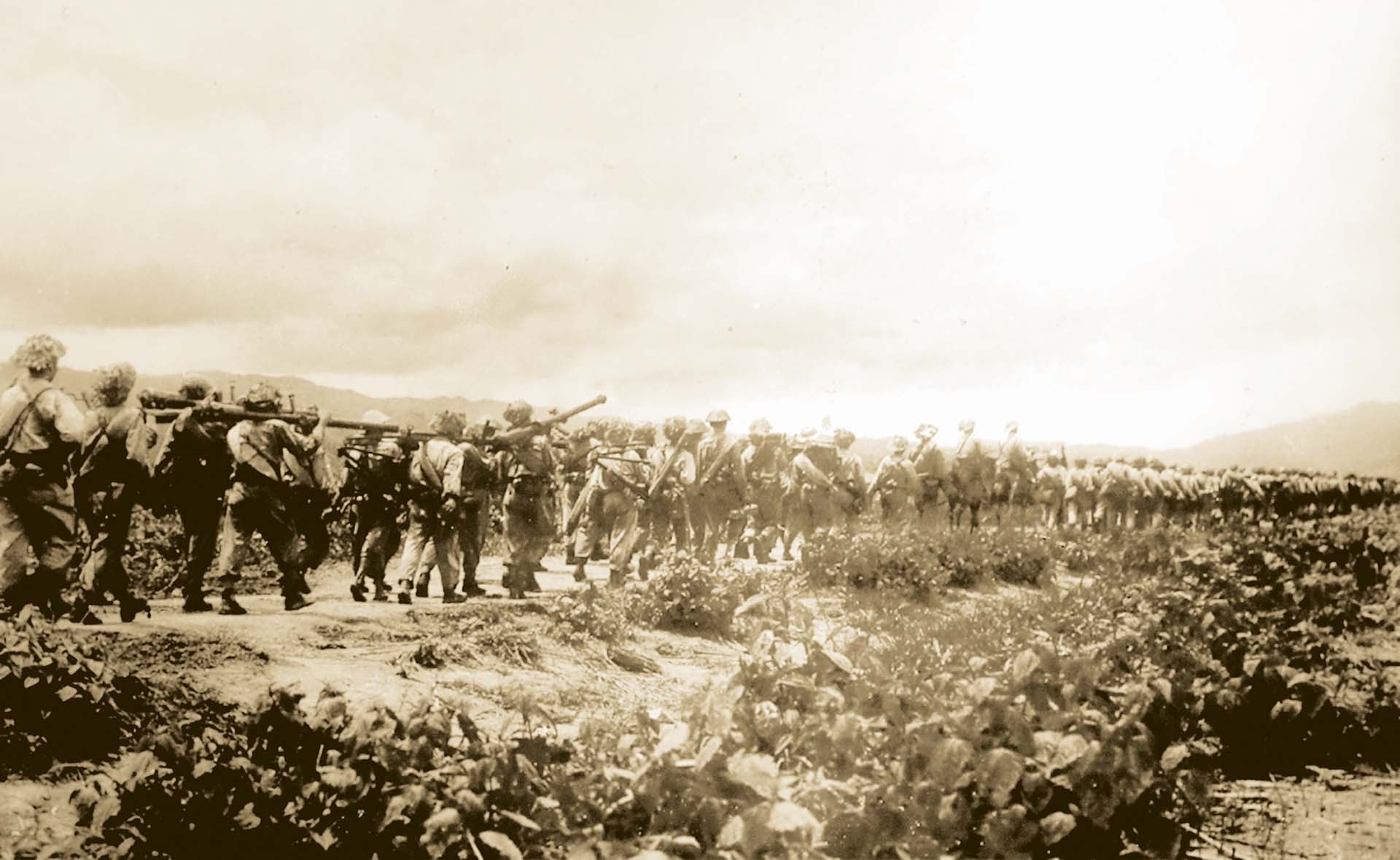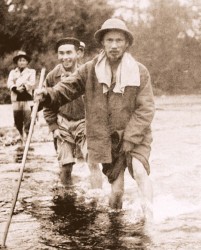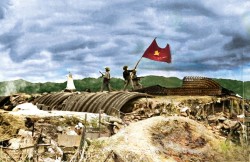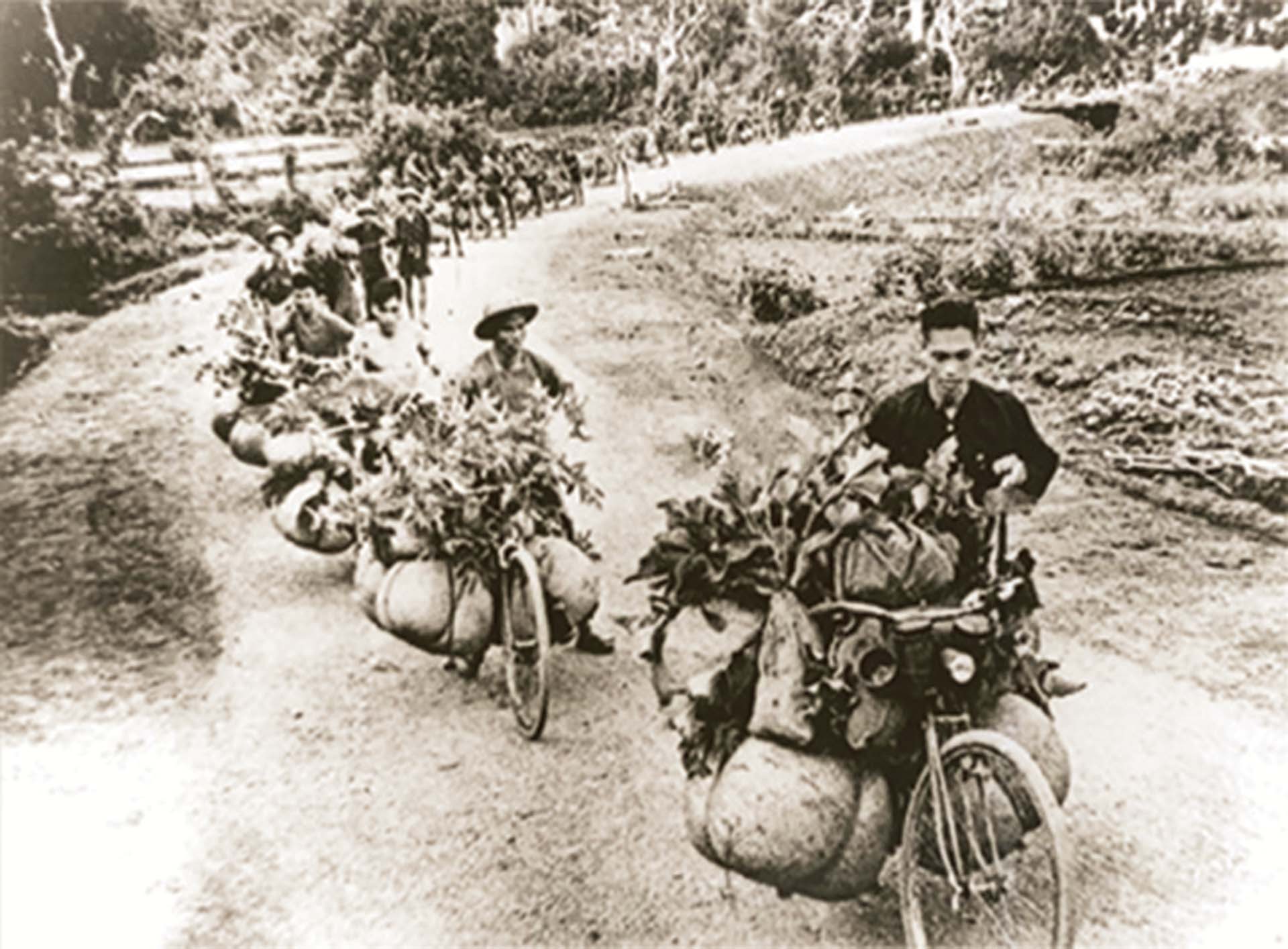
Dien Bien Phu through the lens of international media
Latest
 |
| Vietnamese army marching to the Northwest in 1954. (Photo: VNA) |
Victory making a change in history
The British newspaper The Guardian once had an article titled Battle against oblivion: the defeat that ended French colonial rule in Viet Nam. At the beginning of the article, The Guardian affirmed that Dien Bien Phu was a disaster for France.
“Dien Bien Phu: three words that in France are still synonymous with a symbolic defeat. On 7 May 1954, after 57 days and nights of fierce fighting between Viet Minh troops and members of the French expeditionary force, the insurgents finally prevailed,” the article prescribed.
The Pathetlao (Laos) newspaper issued on May 6, 2020 had an article titled Dien Bien Phu Victory is the pride of the Vietnamese people to acclaim the victorious Battle of Dien Bien Phu, affirming that this was a victory identified as the most glorious in the history of the Vietnamese people's struggle against foreign imperialism.
| More from WVR |
 Stories about Uncle Ho's memorabilia related to Dien Bien Phu campaign Stories about Uncle Ho's memorabilia related to Dien Bien Phu campaign |
According to the article, the Dien Bien Phu victory on May 7, 1954 is both the pride of the Vietnamese people in the cause of building and developing the country, as well as a great source of motivation in the reform process to realize realizing the goals: “Prosperity, strong country, democracy, fairness, civilization.”
For Laos, the victory of Dien Bien Phu has important meaning in the special solidarity relationship and fighting alliance between Laos and Viet Nam, because Dien Bien Phu is located adjacent to Phongsaly and Houaphanh provinces, so the victory over the French colonialists at Dien Bien Phu helped destroy an important enemy garrison.
Ten years ago, on May 7, 2014, French newspaper Le Monde published a series of photos with the title 60 years of the battle of Dien Bien Phu. In the introduction to the photo series, Le Monde newspaper wrote: “On May 7, 1954, the French army admitted losing the battle against Ho Chi Minh's Viet Minh. A symbolic defeat that led to the end of the Indochina War two months later.”
Towards the 70th celebration of the Dien Bien Phu victory, recently a series of famous newspapers and magazines in Egypt such as Egypt Today, Cairo Today, Al-Naser News... published articles about this important event, to highlight the meaning of victory for Viet Nam as well as for other colonized countries around the world. The articles appreciated the steady step on the path of prosperous development, with many great achievements after nearly 40 years of Renovation (Doi Moi), under the leadership of the Communist Party of Viet Nam.
Generally as reflected in the articles, the Dien Bien Phu victory still resonates to this day, when people across the country celebrate the 70th anniversary of the heroic battle of the Vietnamese army and people under the leadership of President Ho Chi Minh and General Vo Nguyen Giap. The victory not only affected Viet Nam's history but also changed the world situation, paving the way for national independence movements in colonial and dependent countries.
The victory not only bears great significance for the Vietnamese people but also exerts a strong encouragement and inspiration for other colonialized countries around the world in their journey to fight against wars of aggression and gain independence. In 1960 alone, 17 African countries gained independence, so 1960 was called the “Year of Africa.”
The Dien Bien Phu victory directly led to the signing of the Geneva Agreement on ending the war and restoring peace in Indochina; creating the basis and conditions for the Vietnamese people to advance to victory in the resistance war against the US, to save the country, liberate the South, and unify the country in 1975.
Clear and intelligent approach of the leadership
In the book Moment of Truth, General Navarre, Commander-in-Chief of the French expeditionary force in Viet Nam, admitted that the French’s defeat at Dien Bien Phu was the collapse of colonial ideas, which was caused by the contradiction between the political and military policies of the current French government and the colonial and imperialist powers in Indochina. Meanwhile, his opponent had a unified, coherent and thorough approach of national liberation struggle to lead the resistance.
“In the Viet Minh regime, there are no separate political and military policies but unified political and military policies. Those policies are decided by a Central Committee of which the Commander-in-Chief is a member who is also the Minister of Defense. The military plan is placed in a unabridged plan where everything is targeted at the mission to ensure success.” General Navarre commented.
| More from WVR |
 Dien Bien Phu Victory: Volition, bravery and intelligence of Viet Nam in Ho Chi Minh era Dien Bien Phu Victory: Volition, bravery and intelligence of Viet Nam in Ho Chi Minh era |
Talking about the political and internal policies of the French Government at that time, Navarre had bitter exclamation: “But alas! the situation in our side is completely opposite. Never before have we had someone in power from beginning to end... To lead the fight for the past seven years, our 19 consecutive governments have appointed five political leaders in Indochina and six general commanders. Furthermore, we never have a consistent policy from start to finish. Or to be more precise: we don't have any policy at all...”.
In the book The Ten Thousand Day War, author Michael Maclear stated that one of the reasons for Viet Nam's victory against the French colonialists was because it had a very talented Commander-in-Chief. He wrote: “For Mr. Giap, the impression when we meet him is that he is similar to Napoleon in terms of physique and knowledge. He is a talented strategist, with the policy of racing for time; first destroy the pawns, the wait for the opportunity to destroy the castle... He lost many battles but he never lost a war.”
Joint effort, common mindfulness
Looking at the panorama of the Indochina war in the years 1953-1954, Rivaron Newspaper, issue dated July 8, 1954, wrote: “The morale of their troops is high. That is the spirit of a winner... On the other hand, it must be said that the people have compassion for Uncle Ho Chi Minh. The people were willing to leave their places to follow Uncle Ho and the Viet Minh.
On the contrary, “the morale of the French army fluctuated greatly, and the morale of the mercenary Vietnamese troops alongside them had long since collapsed, because they thought the Viet Minh would definitely win.”
 |
| Despite tons of bombs and shelling that were thrown onto the road, the road has never been cut off for the opponent soldiers to receive ammunitions and equipment. (Photo: VNA) |
Author G. Roy wrote in the book The Battle of Dien Bien Phu, published in 1963 in Paris (France), in which there is a passage: “Despite tons of bombs and shelling that were thrown onto the road, the road has never been cut off for the opponent soldiers to receive ammunitions and equipment. Don't think that it was China's aid that defeated General Henri Navarre, but it was the French Peugeot bicycles carrying 200 to 300kg, driven by those people who didn't eat enough for meals and they slept on plastic sheets spread on the ground. In short, General Henri Navarre was not defeated by means of war, but first of all by the intelligence of the opponents and their determination to win.”
In the book Communist Revolutionary War, author K.Tenihen writes: “The tactics were carried out brilliantly, regularly by an army of dedicated and courageous officers and soldiers. They lived together in the same condition, jointly endured and shared hardships together. Judging from their appearance, it is difficult to distinguish soldiers from officers, they really work together with mindfulness to realize their ideals.”
Admiration for a heroic army
In the book Red Indochina, published in Paris in 1975, French General Raoul Albin Louis Salan had to admit: The Vietnam People's Army had “become an unparalleled war machine”.
The basic strength of that “war machine” is not the strength of a professional army, or in weapons and ammunitions, but in political and divine determination to protect the nation's survival to fight against the foreign invaders.
Carl Thayer - a researcher of the Australian Defense Force Academy stated: “The defeat of the French at Dien Bien Phu forced France to quickly end its rule in Indochina as well as its presence in Southeast Asia.”
He also believed that the Dien Bien Phu Victory sent a message: Viet Nam possesses a military art that can defeat any invading army and Vietnamese history has proven that.
















